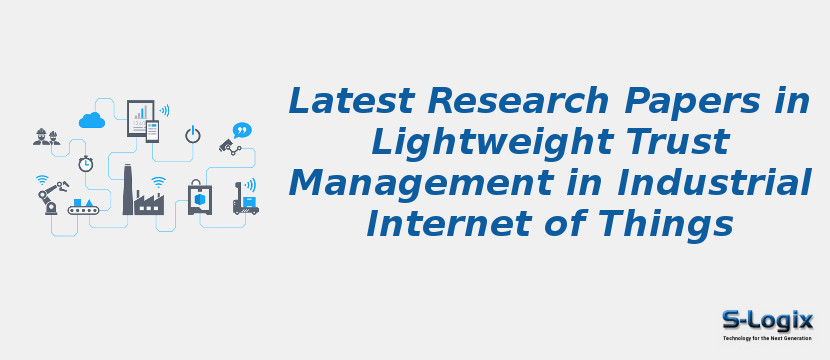Research papers in lightweight trust management for Industrial Internet of Things (IIoT) focus on establishing reliable and secure interactions among heterogeneous industrial devices while minimizing computational, communication, and energy overhead. In IIoT environments, devices such as sensors, actuators, controllers, and gateways often operate under resource constraints and communicate over dynamic, large-scale networks, making them vulnerable to malicious behaviors, insider threats, and data tampering. Trust management frameworks aim to evaluate and quantify the reliability of devices, data sources, and communication channels, enabling the system to make informed decisions about cooperation, data sharing, and task allocation. Researchers have proposed lightweight trust computation methods based on direct interactions, recommendations from neighboring nodes, or hybrid models combining both, often enhanced with probabilistic, fuzzy logic, or machine learning approaches to handle uncertainty and dynamic network conditions. Security-aware trust frameworks integrate authentication, encryption, and anomaly detection to prevent malicious nodes from manipulating trust values. Edge and fog computing paradigms are leveraged to distribute trust evaluation closer to data sources, reducing latency and network overhead. Some works also explore blockchain-assisted trust management to provide decentralized, tamper-resistant, and auditable trust records in large-scale IIoT networks. Challenges remain in balancing trust accuracy, scalability, energy efficiency, and resilience against collusion, Sybil, and insider attacks. Overall, the literature highlights that lightweight trust management is a crucial enabler for secure, reliable, and adaptive IIoT operations, ensuring dependable device interactions while respecting the constraints of industrial environments.
